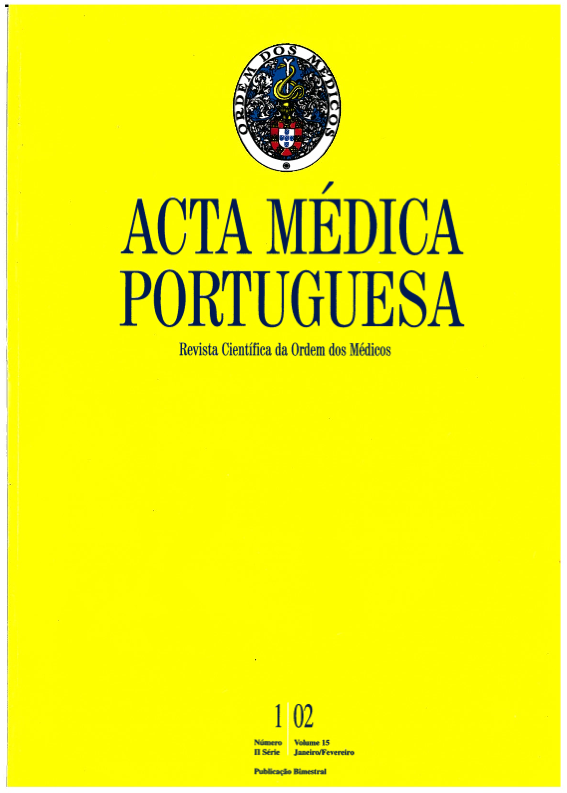Determinação dos níveis da carnitina no plasma sua importância no estudo em doentes com doenças neuromusculares.
DOI:
https://doi.org/10.20344/amp.1913Resumo
L-carnitine plays a major role in the transport of the long chain fatty acids for the beta-oxidation in the mitochondria. The deficiency of the carnitine is associated by the deficit of the beta-oxidation of the long chain fatty acids and so a different syndromes. The purpose of this study was to determine the plasmatic concentrations of the carnitine and its metabolites in patients with neuromuscular pathologies within the group of mitochondrial myopathies by the comparison with a control group. The study comprised 11 healthy volunteers and 11 patients with neuromuscular mitochondrial diseases. The plasmatic concentrations of the free carnitine, total carnitine and the short and long chain acilcarnitine were determined by using the radio enzymatic method with Acetyl Co A 14C. The values were calculated by the standard curve in increased concentrations of the L-carnitine in aquous solution. RESULTS: The values were expressed as mean +/- S.D. The control group gave the following values: For free carnitine (32.6 +/- 4.95 microM), total carnitine (38.48 +/- 5.8 microM), short chain acylcarnitine (4.12 +/- 0.95 microM) and for long chain acylcarnitine (1.73 +/- 0.15 microM). The patients were divided in two groups according to their values: The 1st group gave the values within the control group: For free carnitine (31.44 +/- 3.72 microM), total carnitine (36.6 +/- 3.86 microM), short chain acylcarnitine (3.52 +/- 1.56 microM) and long chain acylcarnitine (1.68 +/- 0.08 microM). The 2nd group gave values bellow the control group: For free carnitine (16.8 +/- 6.3 microM), total carnitine (20.88 +/- 6.26 microM), short chain acylcarnitine (2.98 +/- 0.81 microM) and long chain acylcarnitine (0.92 +/- 0.41 microM) respectively. In conclusion, this method showed appropriate and accurate for the determinations of the carnitine and its metabolites in plasma, and must be useful for clinical support.Downloads
Downloads
Como Citar
Edição
Secção
Licença
Todos os artigos publicados na AMP são de acesso aberto e cumprem os requisitos das agências de financiamento ou instituições académicas. Relativamente à utilização por terceiros a AMP rege-se pelos termos da licença Creative Commons ‘Atribuição – Uso Não-Comercial – (CC-BY-NC)’.
É da responsabilidade do autor obter permissão para reproduzir figuras, tabelas, etc., de outras publicações. Após a aceitação de um artigo, os autores serão convidados a preencher uma “Declaração de Responsabilidade Autoral e Partilha de Direitos de Autor “(http://www.actamedicaportuguesa.com/info/AMP-NormasPublicacao.pdf) e a “Declaração de Potenciais Conflitos de Interesse” (http://www.icmje.org/conflicts-of-interest) do ICMJE. Será enviado um e-mail ao autor correspondente, confirmando a receção do manuscrito.
Após a publicação, os autores ficam autorizados a disponibilizar os seus artigos em repositórios das suas instituições de origem, desde que mencionem sempre onde foram publicados e de acordo com a licença Creative Commons









